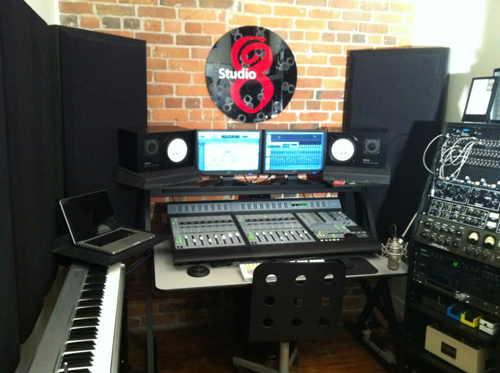Recording 101: Eyeballing the Right Engineer
Fancy lights and buttons won’t make or break your recording. I was definitely guilty of this mistake early on in my recording career, and it  always seemed to yield the same results: a shit sounding demo, and if I was particularly lucky, the added bonus of an insecurity complex to boot!
always seemed to yield the same results: a shit sounding demo, and if I was particularly lucky, the added bonus of an insecurity complex to boot!
No Kidding! This kind of experience can be quite disheartening and completely avoidable if you shift your focus away from the equipment a room has, to the engineers a room employs. When I learned this, (albeit the hard way), everything changed.
I began having way more positive experiences during my recording sessions and, more importantly, I achieved way better sounding results. Results, might I add, I was actually excited to share with others.
It’s simple, really. Good gear in the hands of a bad engineer will never yield good results. Conversely, okay gear in the hands of a resourcefully talented and creative engineer will almost always yield good, if not better results.
So here are a few pointers I wish someone would have shared with me early on in my recording career:
Step 1: Meet the Engineer
It’s in your best interest to go to at least three different rooms to meet with engineers to discuss your project and sus out their ‘vibe.’ Trust your instincts with this, and remember to not get caught up in what the room may or may not have.
Instead, discuss recording philosophies and approaches with the engineer in order to get a sense of where strengths lie. This will also help to give you an idea of how creative and inventive the engineer is. I’d be way more inclined to work with an engineer who could make a four-track tape recorder sound like a Beatles recording, than some hyped-up engineer with a whack load of gear who could do the same. Do you see my point?
Lastly, it’s obviously always a good idea to hear some of an engineer’s recent work and to speak with some past clients.
Step 2: Comfort
While I’ve been preaching the entire time that it’s not about the gear, there is a level of comfort you’re going to want to feel when you’re in the room. Make sure you dig the space and feel as though it’s a place you’re going to want to play in. A good engineer will also have the innate ability to make just about any space feel ‘right’ by the demeanor and energy they‘re demonstrating.
Step 3: Sound
This one seems obvious. As noted, listen to a variety of different recordings the engineer has tracked and mixed. Ask for copies of these mixes to listen to in familiar listening environments, such as your car or home stereo. A good mix will almost always sound good in the room it was created in. Only by taking that mix out into a neutral listening environment will you be able to discern any discrepancies in the work.
Step 4: Cost.
It’s simple economics: big rooms have big overhead, while small rooms have significantly less overhead, meaning you’re going to get a lot more for a lot less.
After doing all of your research, you are going to want to think about your budget and areas you are willing to compromise, such as working in a smaller room with less gear, but with an engineer you ‘click’ with. If you do your due diligence successfully, you’re most likely going to find a resourceful engineer who can make an SM7 sound like a U87. When you do, your wallet is going to thank you.
In Conclusion…
Remember: you can’t polish a turd. Ultimately, it always comes back to the quality of the song. If you’ve taken the time to write a beautifully crafted song, the studio will become secondary to the performance.
I love to use The Kingsmen’s “Louie Louie” or Link Wray and his Ray Men’s “Rumble” as perfect examples of songs that took precedent over the quality of the equipment used to record them. If you’re looking for a great room with all the fixings to compensate for poor writing – perhaps even subconsciously – maybe stepping back to re-evaluate the music first might be a good idea.
-Jeff Eden
Check back next month for another instalment of Recording 101!
About the Author: Jeff Eden is an established Composer for Film & TV, and a 20 year veteran of the recording industry. He is the Owner & Head Engineer at Studio8.
Please be sure to follow us on Twitter @riffyou and at Facebook.com/riffyou.

































